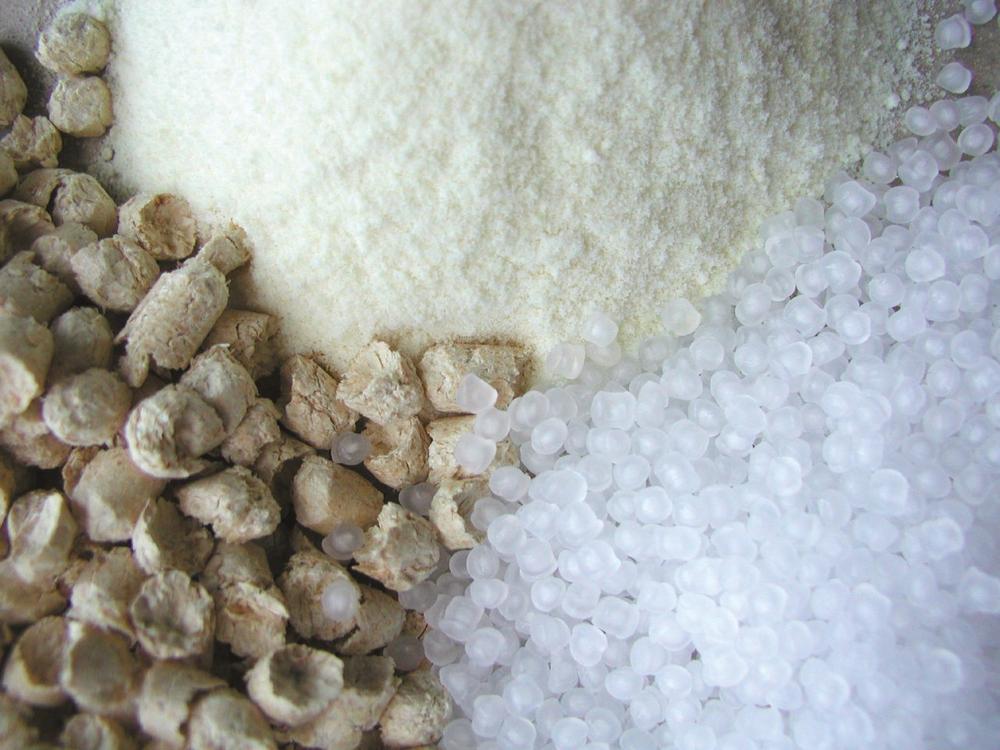The application possibilities for plastics are almost endless thanks to additives. As the technical requirements for plastics will continue to increase in the future, the importance of additives for plastics will also increase. In modern thermoplastics, fillers and additives are often used to improve certain properties of the final component. The focus here is usually on improving the mechanical properties of the component, such as reducing shrinkage or increasing rigidity.
Improving the surface also plays an important role. Fillers for thermoplastics include glass fibers, carbon fibers and mineral fillers such as calcium carbonate or talc. In addition to thermoplastics, fillers can also be used in thermosets. Here, the focus is usually on increasing the viscosity by mixing in additives. In the elastomer material group, for example, carbon black or inorganic fillers are often used to improve the mechanical properties of plastic components.
At the SKZ site in Peine, the importance of precise knowledge of the limits and possibilities of fillers and additives will be taken into account during a two-day seminar from November 19 to 20. Prof. Dr. Martin Bonnet from the Institute for Materials Application at the Technical University of Cologne will lead the seminar and explain in an interview why additives and fillers have become indispensable in plastics.
SKZ: Why are additives used in plastics and why fillers?
Prof. Dr. Martin Bonnet: Only a few plastics can be processed and used satisfactorily in their raw state. Heat and atmospheric oxygen would already significantly damage the plastic during processing. But the plastic component is also exposed to environmental influences during possible storage or at the latest during use, which would sooner or later lead to significant damage and thus to losses in the material properties. These environmental conditions include all liquid and gaseous media with which the plastic can come into contact, high-energy radiation – above all the UV component from sunlight – and possibly increased temperatures. A large number of additives are used in plastics not only to make the plastic processable and to protect it from the aforementioned environmental influences, but also to optimize its properties and appearance. It is these additives that turn many plastics into effective materials. In addition to additives, it is impossible to imagine plastics today without a wide variety of fillers. This is due not only to the fact that they generally help to reduce costs, but also to the fact that they make many product properties possible in the first place thanks to ever better adapted types and new developments.
SKZ: Are there any plastics today that are not customized?
Bonnet: Actually, hardly any. A large proportion of the fillers and additives are usually already added by the molding compound manufacturer, the so-called compounder. As it is difficult to incorporate fillers and additives in some plastics processing methods, these processors purchase finished compounds from the compounder. With many other plastics processing methods, however, fillers and additives can also be added during final processing.
SKZ: You have been supporting the SKZ at the “Fillers and additives” seminar for many years. What makes the event so interesting?
Bonnet: What makes this event so interesting is the large number of speakers from the filler and additive industry who report on the properties and possible applications of the most common fillers and additives. As always, the speakers will be available to answer questions after their presentations. The evening event offers an excellent opportunity for networking between participants and speakers. During the event, participants will gain important know-how for the optimal, profitable use of fillers and additives in plastics.
The SKZ is climate protection company and a member of the Zuse Association. This is an association of independent, industry-related research institutions that pursue the goal of improving the performance and competitiveness of industry, especially SMEs, through innovation and networking.
FSKZ e. V.
Friedrich-Bergius-Ring 22
97076 Würzburg
Telefon: +49 931 4104-0
https://www.skz.de
Branch Office Manager Peine
Telefon: +49 (5171) 940996-2
E-Mail: a.grzeskowiak@skz.de
Presse- und Öffentlichkeitsarbeit
Telefon: +49 931 4104-197
E-Mail: p.lehnfeld@skz.de
![]()

